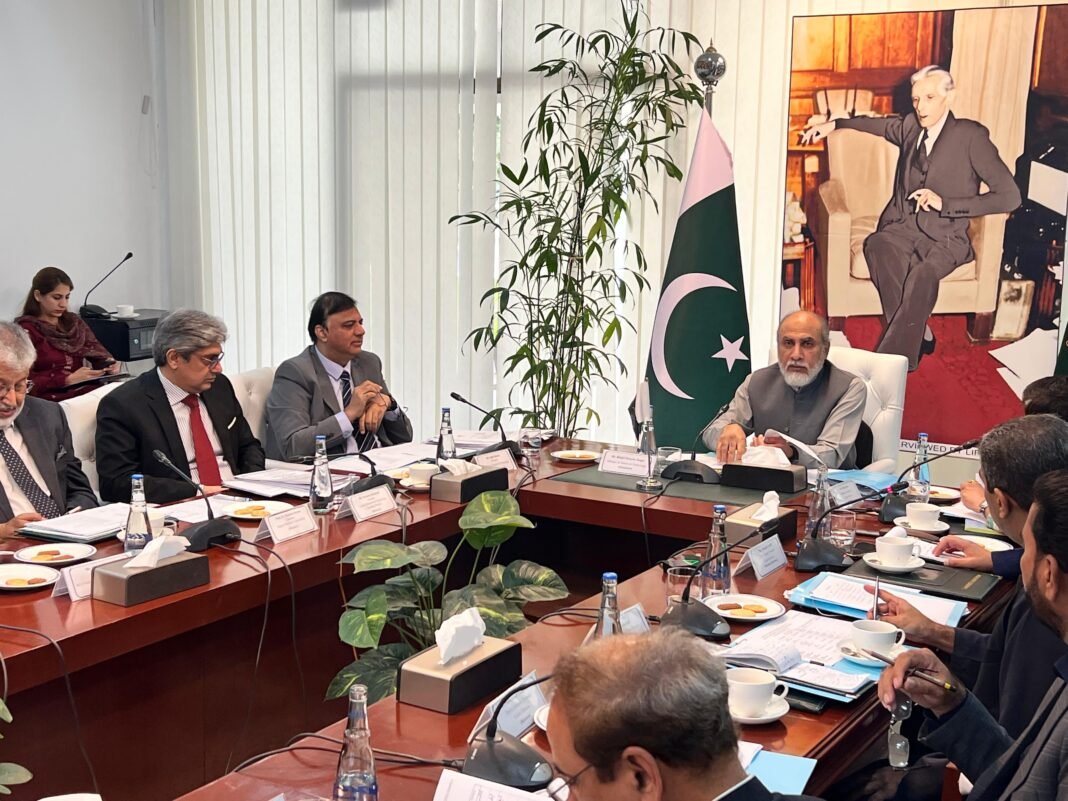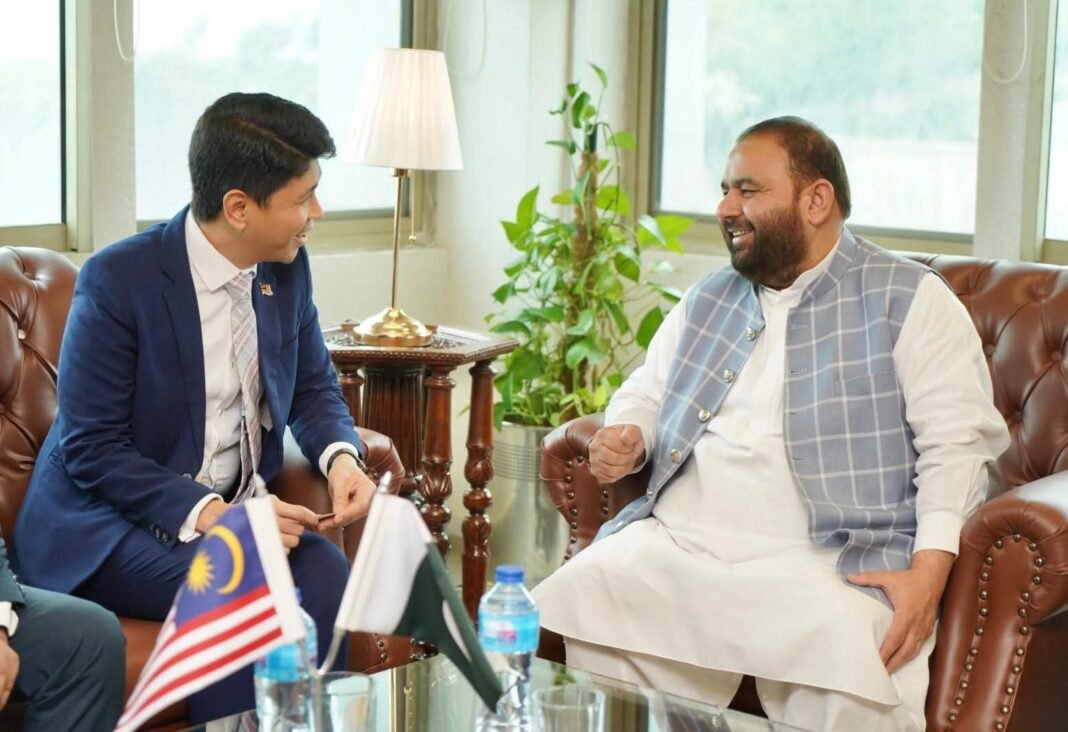
Islamabad — : The Senate Standing Committee on Housing and Works, chaired by Senator Nasir Mehmood , convened to review critical issues ranging from land encroachments to stalled infrastructure projects, with a particular focus on the long-delayed Islamabad Central Jail.
Senator Nasir reaffirmed his commitment to efficient leadership, stating, “I want to do a good job in the position I am in — I never waste time. I cannot leave the squatters.”
The Committee expressed serious concern over the protracted issue of land grabbing, especially in Murree. “There has been a land grab issue in Murree for forty years,” lamented the Chairman, as members stressed that encroachment remains a persistent challenge. A member noted, “It is a matter of time — if the squatters are alive, action must be taken against them.”
During the deliberations, Senator Mehmood questioned the absence of the Chief Commissioner Rawalpindi, to which Additional Chief Commissioner informed that the Chief Commissioner was unable to attend due to security duties for Muharram-ul-Haram.
Welcoming the new Secretary of the Ministry of Housing, Senator Nasir Mehmood emphasized institutional respect, while the Secretary assured, “I respect the parliamentarian from the bottom of my heart,” and briefed the committee on the Ministry’s digitalization drive in line with the Prime Minister’s directives.
Turning to the Islamabad Central Jail, CDA officials revealed that the project — originally handed to PWD in 2013 but reallocated to CDA in 2024 — faces severe funding gaps. “This year, the budget of one billion was approved, but an additional Rs 2.5 billion is required,” CDA officials informed. They cautioned that, without further funding, construction work would be delayed, with cost overruns inevitable.
The Chairman pressed for clear timelines, asking, “If the money is received, how long will it take to complete the remaining work?” CDA officials replied, “The remaining 49% will be completed in four months, if funds are made available.” It was disclosed that the Islamabad Central Jail is currently 51% complete and is among fifteen ongoing projects under the Interior Ministry’s purview.
Senator Nasir Mehmood underlined the urgency, remarking, “If the work on Central Jail is not completed this year, the cost will increase. Projects supposed to be completed in three years are being completed in fourteen years — if a project is not completed on time, the responsibility falls on the Finance Division.”
Officials shared that Rs 1.32 billion has been released for FY 2024–25, but Rs 2.5 billion more is essential to prevent further delays. The Chairman urged the Ministry of Interior and the Planning Division to coordinate closely to ensure timely delivery. “If there is no savings, the prison project will not be completed in this way,” he warned.
The Committee further deliberated on personnel recruitment for the jail’s operationalization, emphasizing that the process must align with its functional establishment.
Other matters discussed included the overdue maintenance work at the Shaheed-e-Millat Secretariat, Jinnah Avenue, involving replacement of five lifts and essential repairs. The Committee also sought the draft rules to replace the outdated AARs and the justification for proposed revisions.
In housing matters, the Committee was apprised that a new mobile app will soon be launched to manage the general waiting list for residential allotments. While this list is already available online, Senator Nasir Mehmood emphasized the need for a streamlined mechanism stressed, *“We need a mechanism through which houses are allocated on a timely basis. People should not have to wait years or receive houses only at retirement.”
The meeting was attended by Senators Husna Bano, Khalida Ateeb, Saifullah Sarwar Khan Nyazee, Hidayat Ullah Khan, Muhammad Aslam Abro, and **Abdul Shakoor Khan.
Sohail Majeed is a Special Correspondent at The Diplomatic Insight. He has twelve plus years of experience in journalism & reporting. He covers International Affairs, Diplomacy, UN, Sports, Climate Change, Economy, Technology, and Health.






![logo-1[1]](https://globalnewspakistan.com/wp-content/uploads/2025/01/logo-11-e1737618310315-300x187.png)